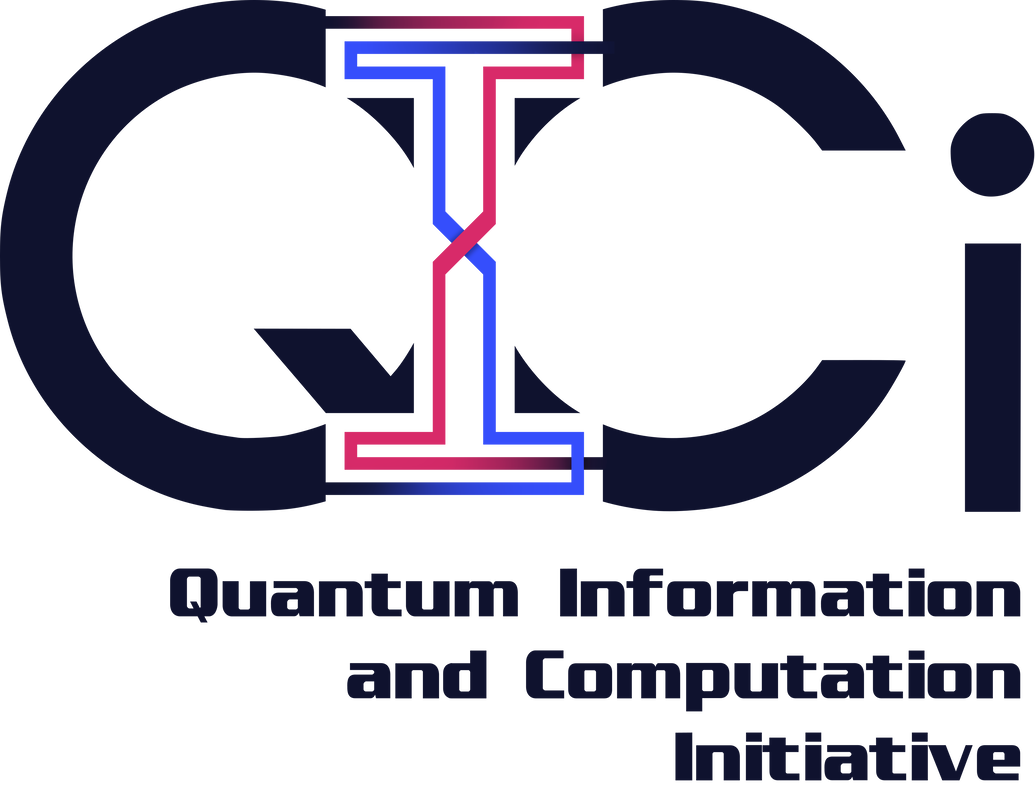The mission of QICI is to promote the growth of the quantum information area in Hong Kong, and to develop Hong Kong as an international research hub for quantum information and computation.
QICI has been established in November 2018 under the auspices of the HKU Department of Computer Science. The initiative builds on the QIFT group (Quantum Information, Foundations, and Technologies) led by Professor Giulio Chiribella. Its research platform consists of 3 research teams working on quantum information theory, quantum cryptography, quantum gravity, and quantum foundations.
In collaboration with the Quantum Group at the Computer Science Department of the University of Oxford, QICI hosts the HKU-Oxford Joint Laboratory for Quantum Information and Computation. The activities of the joint lab include joint supervision of PhD students, establishment of joint postdoctoral positions, exchanges of research visits, teaching exchange, and joint organization of conferences and public lectures.
Quantum Information. Our research aims at exploring new ways to process information, made possible by the puzzling laws of quantum mechanics. A major focus in our work is the optimized design of quantum devices that make the best use of limited resources. We ask questions like:
• How well can we read out a signal encoded in the quantum state?
• How well can a quantum particle indicate a moment in time or a direction in space?
• What is the minimum amount of energy needed to implement a desired computation?
We tackle these and many other fundamental questions with a variety of techniques, ranging from group theory to semidefinite programming and convex analysis.
Quantum Foundations. Being familiar both with quantum advantages and quantum limitations, we are also compelled to understand what makes quantum information so special. Where does the power of quantum computers come from? What makes quantum cryptography secure? Can reduce the variety of quantum information protocols to a few simple principles?
Searching for high-level principles for quantum protocols is one of the main lines of our foundational research. We believe that, once the basic principles have been identified, inventing new quantum protocols and new quantum devices will become easier and more intuitive. Moreover, our research on the foundations gives us a unique opportunity to share the beauty of quantum mechanics with a broader public and to transfer fresh new knowledge from academia to society.
Our foundational activity is not limited to the search of high-level principles for quantum information. A more ambitious programme is to turn such principles into a foundation for the whole of quantum physics. Our approach is inspired by the motto “Quantum foundations in the light of quantum information”, coined by Gilles Brassard and Chris Fuchs. Sometimes, quantum information offers a new perspective on old questions on quantum mechanics, while some other times it motivates entirely new questions. And sometimes, thinking about foundations can lead us to the discovery of new quantum effects and to the design of new information protocols.
For us, exploring the foundations is not a pastime, but rather a method—a way to expand the impact of quantum information and to highlight its connections with other exciting areas of physics and computer science.
Quantum Metrology. Quantum metrology provides the foundation for a new generation of ultra-precise sensors, powered by quantum resources such as entanglement and coherence. Quantum metrology promises a wide range of exciting applications, ranging from networks of quantum sensors to quantum radar. Moreover, unlike quantum computing, which is a long-term endeavor, quantum metrology has already been applied to tasks like gravitational wave detection and is expected to deliver more practical technologies in the relatively short term.
Our research extends quantum metrology to the new regime of non-Markovian processes. This allows us to abandon the Markov assumption in the conventional model and to consider quantum sensing of a much broader class of physical processes. In the new regime of non-Markovian quantum metrology, we explore intriguing phenomena such as quantum Zeno effect and memory effect, and come up with benchmarks and tests that benefit the realization of quantum devices.
Quantum technologies. Our investigations into the roots of quantum information is complemented by an interest in technological applications, especially in quantum optics. In the past few years, we analyzed experiments on new quantum technologies, such as quantum teleportation, squeezing, amplification, and purification. We developed a set of "quantum benchmarks", that is, tests that can be used to judge the performances of realistic devices. Combined with the optimal quantum protocols, the quantum benchmark indicate provide an ideal standard for the design of future experiments.
Working on an emerging technology, we strongly desire to see the object of our research make an impact in the real world. Sometimes it turns out that the optimal devices predicted theoretically cannot be easily implemented in practice. But even in those cases, knowing the ultimate in-principle limits is important, as it can serve as a compass indicating the direction for the next technological advancements. Even the most foundational layers of our research eventually aim to make a real-world impact, by identifying new working principles for the construction of quantum algorithms and communication systems, and by expanding the application of quantum technologies to the simulation of new exotic physics.
QICI has been established in November 2018 under the auspices of the HKU Department of Computer Science. The initiative builds on the QIFT group (Quantum Information, Foundations, and Technologies) led by Professor Giulio Chiribella. Its research platform consists of 3 research teams working on quantum information theory, quantum cryptography, quantum gravity, and quantum foundations.
In collaboration with the Quantum Group at the Computer Science Department of the University of Oxford, QICI hosts the HKU-Oxford Joint Laboratory for Quantum Information and Computation. The activities of the joint lab include joint supervision of PhD students, establishment of joint postdoctoral positions, exchanges of research visits, teaching exchange, and joint organization of conferences and public lectures.
Quantum Information. Our research aims at exploring new ways to process information, made possible by the puzzling laws of quantum mechanics. A major focus in our work is the optimized design of quantum devices that make the best use of limited resources. We ask questions like:
• How well can we read out a signal encoded in the quantum state?
• How well can a quantum particle indicate a moment in time or a direction in space?
• What is the minimum amount of energy needed to implement a desired computation?
We tackle these and many other fundamental questions with a variety of techniques, ranging from group theory to semidefinite programming and convex analysis.
Quantum Foundations. Being familiar both with quantum advantages and quantum limitations, we are also compelled to understand what makes quantum information so special. Where does the power of quantum computers come from? What makes quantum cryptography secure? Can reduce the variety of quantum information protocols to a few simple principles?
Searching for high-level principles for quantum protocols is one of the main lines of our foundational research. We believe that, once the basic principles have been identified, inventing new quantum protocols and new quantum devices will become easier and more intuitive. Moreover, our research on the foundations gives us a unique opportunity to share the beauty of quantum mechanics with a broader public and to transfer fresh new knowledge from academia to society.
Our foundational activity is not limited to the search of high-level principles for quantum information. A more ambitious programme is to turn such principles into a foundation for the whole of quantum physics. Our approach is inspired by the motto “Quantum foundations in the light of quantum information”, coined by Gilles Brassard and Chris Fuchs. Sometimes, quantum information offers a new perspective on old questions on quantum mechanics, while some other times it motivates entirely new questions. And sometimes, thinking about foundations can lead us to the discovery of new quantum effects and to the design of new information protocols.
For us, exploring the foundations is not a pastime, but rather a method—a way to expand the impact of quantum information and to highlight its connections with other exciting areas of physics and computer science.
Quantum Metrology. Quantum metrology provides the foundation for a new generation of ultra-precise sensors, powered by quantum resources such as entanglement and coherence. Quantum metrology promises a wide range of exciting applications, ranging from networks of quantum sensors to quantum radar. Moreover, unlike quantum computing, which is a long-term endeavor, quantum metrology has already been applied to tasks like gravitational wave detection and is expected to deliver more practical technologies in the relatively short term.
Our research extends quantum metrology to the new regime of non-Markovian processes. This allows us to abandon the Markov assumption in the conventional model and to consider quantum sensing of a much broader class of physical processes. In the new regime of non-Markovian quantum metrology, we explore intriguing phenomena such as quantum Zeno effect and memory effect, and come up with benchmarks and tests that benefit the realization of quantum devices.
Quantum technologies. Our investigations into the roots of quantum information is complemented by an interest in technological applications, especially in quantum optics. In the past few years, we analyzed experiments on new quantum technologies, such as quantum teleportation, squeezing, amplification, and purification. We developed a set of "quantum benchmarks", that is, tests that can be used to judge the performances of realistic devices. Combined with the optimal quantum protocols, the quantum benchmark indicate provide an ideal standard for the design of future experiments.
Working on an emerging technology, we strongly desire to see the object of our research make an impact in the real world. Sometimes it turns out that the optimal devices predicted theoretically cannot be easily implemented in practice. But even in those cases, knowing the ultimate in-principle limits is important, as it can serve as a compass indicating the direction for the next technological advancements. Even the most foundational layers of our research eventually aim to make a real-world impact, by identifying new working principles for the construction of quantum algorithms and communication systems, and by expanding the application of quantum technologies to the simulation of new exotic physics.


